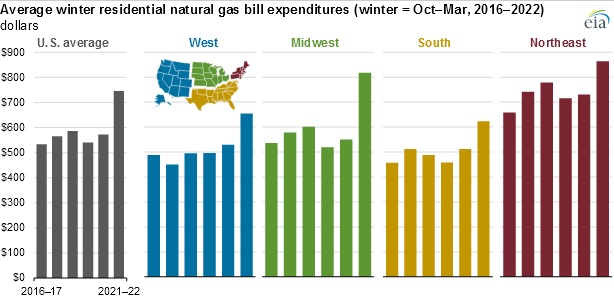 The phrase “energy crisis” is being tossed around again, and with good reason. Oil and gas inventories are lower than average heading into winter, prices are up, and some market insiders are questioning whether producers and refiners will be able to close the gap, especially if Mother Nature decides it’s time for a prolonged or widespread cold stretch.
The phrase “energy crisis” is being tossed around again, and with good reason. Oil and gas inventories are lower than average heading into winter, prices are up, and some market insiders are questioning whether producers and refiners will be able to close the gap, especially if Mother Nature decides it’s time for a prolonged or widespread cold stretch.
Despite all the chatter, so far reporting on this crisis has included little mention of conventional liquid biofuels like ethanol, let alone any discussion of advanced biofuels biodiesel and renewable diesel. With this in mind, energy.ink has decided to take a closer look at the current state of the advanced biofuels market, with an eye toward how it might be affected by the current energy crisis, as well as what, if any, effect advanced biofuels could have on the larger energy market during these volatile times.
Note: Nothing here should be taken as advice to buy or sell any particular product. This market commentary is provided solely for informational purposes. Use it only at your own risk and be sure to consult a qualified advisor before making any financial decisions that might affect your energy business.
As of late October, B100 biodiesel was selling at a discount to conventional on-road diesel (when the D4 Renewable Identification Number [RIN] credit and federal blender’s credit were factored into the total cost). This was based on national averages, but the effects could also be seen in certain individual spot price markets, where B20 was selling for less than B5 and lower blends.
Will these trends continue if crude oil prices — and by extension, diesel fuel prices — keep rising? This remains to be seen. Of course, it depends largely on RIN prices, which have recently been pulling back from record highs. RIN markets are largely influenced by political considerations, but also reflective of biofuel producer and oil refiner attitudes. In other words, even though biofuel prices may seem somewhat, or at least temporarily, immune to energy market crises, nothing occurs in a vacuum.
Knowing this, in recent months, biofuel producers’ associations have reached out to the Biden administration to discuss how their members’ products can help lower consumer fuel costs. This started on October 13, when the Renewable Fuels Association (RFA) wrote the White House, expressing disappointment that the administration had been in talks with the oil industry over gasoline prices. The RFA argued that “increased production and use of low-carbon renewable fuels like ethanol” would provide a “real and immediate solution to higher pump prices.” As evidence, RFA pointed out that ethanol has been selling for cheaper than gasoline at the wholesale level, and that blended motor fuels cost consumers less at the pump than unblended gasoline.
One week later, on October 20, several advanced biofuels groups joined with RFA on a second letter to the White House. The letter argued that “Biofuels insulate consumers from volatile oil markets by extending the fuel supply, much like releasing oil from the Strategic Petroleum Reserve, but with sustainable results.” It went on to state that the industry is being held back by inaction on the federal Renewable Fuel Standard. However, the letter — signed by the Advanced Biofuels Business Council, American Soybean Association, and National Biodiesel Board, among others — reserved any specific recommendations for a possible future meeting with the White House.
So, can increases in biofuel supplies help buoy consumer prices among volatile energy market conditions, or is this a bid by producers to ensure they maintain a seat at the table? Most likely, the answer is a little bit from column A and column B. Remember, nothing occurs in a vacuum.
